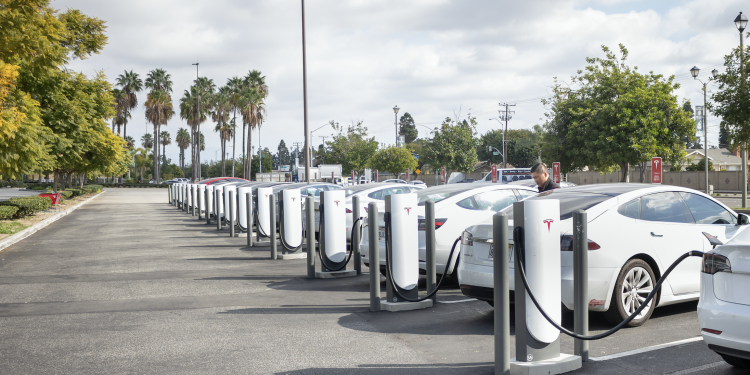Loveelectric is launching a low-cost salary sacrifice electric car leasing scheme for employers, in response to increased demand resulting from the future ban on new petrol and diesel cars by 2030, increased tax breaks for electric vehicles, demand for greener travel options and the recent fuel crisis.
Operating as a salary sacrifice employee benefit, the scheme will allow employees to give up a small portion of their salary, deducted from their gross salary, in exchange for a new electric car.
The launch follows the introduction of the zero per cent benefit in kind tax for fully electric cars in April 2020, allowing companies to offer cars effectively as an employee benefit. Loveelectric hopes the scheme will help 10,000 people switch to electric in the next 18 months, saving them a total of £100m.
Employees will have access to a live quotations site through Loveelectric where they can calculate their salary sacrifice and order their electric vehicle. Loveelectric will also help the employer amend employee contracts and payroll and ensure salary deductions are HMRC compliant.
Loveelectric CEO Steve Tigar says: “A leased car from Loveelectric costs around half the price of one which is taken out by an individual person leasing direct. There is zero-cost for employers, and we assist them at every step. I believe organisations can be a force for good which is why we’re in the process of becoming a B Corp2. It’s about making a difference, and with the climate emergency, we all need to make that difference right now. We want to support all businesses to empower their staff to make the switch to electric. Our Drive Change campaign is designed to raise awareness of the difference electric cars make compared to those which run on petrol and diesel. In addition to the monetary savings, the benefit to the environment is priceless. Our loveelectric.cars app will show the emissions we reduce and the money we save.”
The scheme will most probably pique the interest of companies looking to elevate their environmental credentials and expand on their ESG strategy.
Tigar says: “Everyone’s looking at companies of all sizes and wondering what moves they are making to reduce their carbon footprint and this is one step that they can take that makes a great impact towards that goal.
“The fuel crisis has really spiked interest in electric cars. But a lot of people still don’t know there’s a ‘bike to work’ scheme for electric vehicles (EVs). When a benefit meets a need, you get a tsunami effect. Since the fuel crisis hit, we’ve had a record number of enquiries from companies. The case for going electric was already strong and now it’s overwhelming. It’s not, if, it’s when. People will switch to electric, and with the incentives in place for employees, it’s now a no-brainer.”
The FCA-regulated scheme covers insurance, servicing, maintenance, breakdown as well as early termination.
Tigar says: “The main concern from larger companies is what happens if the employee leaves if they’re on a two or three year lease. I think people are aware that if you break a lease early, there are termination penalties and charges. We realised that that could slow the uptake of the scheme unless we found a solution. We searched the whole market for a specialist insurer that would provide cover for that eventuality so now we bundle the protection service into the overall cost of the service. It means that if the employee resigns or goes on a long-term absence there would be no charge.”
Loveelectric currently has 250 businesses of all sizes on its waiting list and only companies trading profitably for two years are eligible for the scheme.





